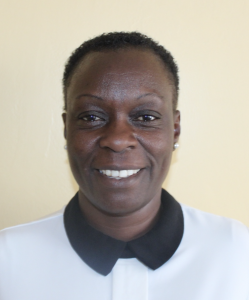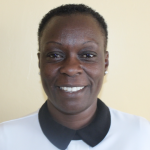The Shamberere community is full of indigenous trees. It is very noisy from the many motorcycles and tractors busy transporting sugarcane from nearby farms to the West Kenya Sugar Factory, which is located about one kilometer away from the school.
Shamberere Boys' High School was established in 1971 under the sponsorship of the Quaker Friends Church in collaboration with the local community as Harambee Mixed Day Secondary School. It was gradually turned into a boys-only boarding school, a process that began in 2008 and was finalized by 2011. As per Government of Kenya regulations, the school is managed by the Board of Management (BOM), which works closely with the Principal, who is its Secretary, the Chief Executive of the School, and the Parents Teachers Association (PTA).
Although Shamberere Secondary School has been in existence for the last 46 years, it still struggles to access enough clean water for its 720 students and 40 teachers and staff as there is no source of water on campus. The nearby Shamberere Technical Training Institute used to allow the secondary school students to fetch water from the institute's campus but has since stopped assisting them, citing their own water needs and growing student body as a priority.
Every day, the boys have to go to look for water from the neighborhood surrounding their school. The students wake up very early in the morning to begin their search for water, and have to go back out throughout the day in an effort to meet the entire school's drinking, cooking, cleaning, and personal hygiene needs.
"The students waste a lot of time looking for water from the neighborhood. Also, the students are not secure [outside the school], so the security of the students is compromised," explained Principal Robert Lumbasi, who knows it is technically against the law to send students away from the school compound during the day. But they have no choice.
"The situation of water has really affected me because sometimes I feel bad when we are told to go and look for water during class time instead of learning. It affects our performance," said student Rigan.
The main water source students rely on is a hand-dug well in the community located within a private homestaed. The water in the well is seasonal, meaning it dries up for part of the year. Even when the well has water, it cannot recharge quickly enough to meet the school's demands, let alone the community's. Students and community members end up overcrowding at the water point which wastes the students' and community members' time.
Because the well is shallow and hand-dug, the water is not considered safe for drinking as pollutants from the surface can easily enter the well water. To fetch water, people have to dip a container on a rope into the water, further adding germs and dirt into the well water. Students frequently report stomachaches, which teachers associate with their reliance on the shallow well's water. In addition, the well is a bit far from the school, and it becomes tricky when students have to cross the busy road leading to neighborhood with the well. There is always the fear that a student will be knocked down by either a motorcycle or even a vehicle.
Last October, the Ministry of Health issued the school a verbal warning, the first step of a closure notice due to their lack of water and the low number of latrines compared to the high student population. With this project, the school is looking forward to securing their and their students' future.
What We Can Do:
New Well
We conducted a hydrogeological survey at this school, and the results indicated the water table beneath it is an ideal candidate for a borehole well. Due to a borehole well's unique ability to tap into a safe, year-round water column, it will be poised to serve all of the water needs for this school's large population, even through the dry months.
The school will help collect the needed construction materials such as sand, rocks, and water for mixing cement. They will also provide housing and meals for the work team, in addition to providing local laborers. We will complement their materials by providing an expert team of artisans and drilling professionals, tools, hardware, and the hand-pump. Once finished, the school’s students and staff will use water from the well and staff for drinking, handwashing, cooking, cleaning, and much more.
The school and we strongly believe that all of these components will work together to improve standards at this school, which will help lead to better student academic performance and unlock the opportunity for these students to live better, healthier lives.
Handwashing Stations
The student health club will oversee the two new handwashing stations we will provide and ensure they are kept clean and in working condition. The club leaders will fill the handwashing stations with water daily and make sure they are always supplied with a cleaning agent such as soap or ash.
VIP Latrines
Two triple-door latrine blocks will be constructed with local materials that the school will help gather. Three doors will serve the girls, and three doors will serve the boys. These new latrines will have cement floors designed to be easy to use and clean. And with a rain tank right on school property, there should be enough water to keep them clean.
Training on Health, Hygiene, COVID-19, and More
We will hold a one-day intensive training session with students, teachers, and parents. This training will cover a wide range of topics, including COVID-19 symptoms, transmission routes, prevention; personal and environmental hygiene; and the operation and maintenance of the rain tank, latrines, and handwashing stations. There will be a special emphasis on handwashing.
Our team of facilitators will use various methods to train, including participatory hygiene and sanitation transformation and asset-based community development. We will initiate a student health club, which will prepare students to lead other pupils into healthy habits at school and home. We will also lead lectures, group discussions and provide illustrative handouts to teach health topics and promote good hygiene practices within the school, including handwashing and water treatment. We will then conduct a series of follow-up training before transitioning to our regularly scheduled support visits throughout the year.

 Borehole Well and Hand Pump
Borehole Well and Hand Pump
 Rehabilitation Project
Rehabilitation Project








































